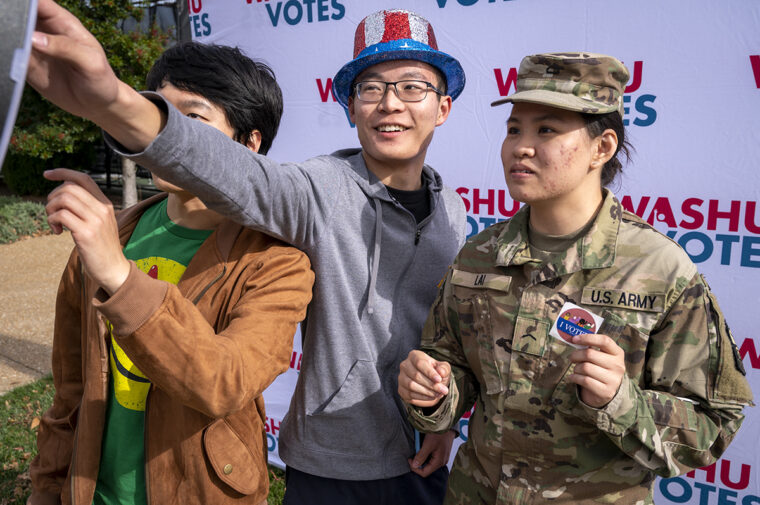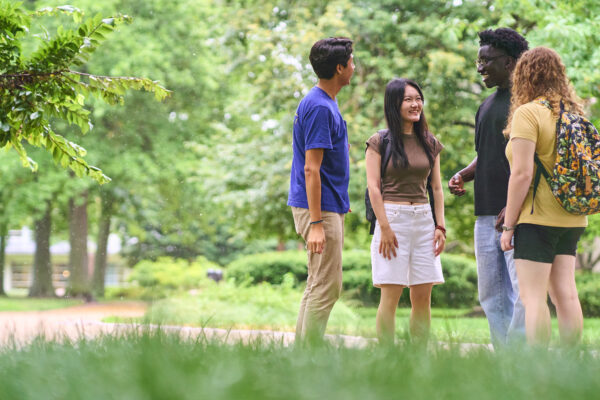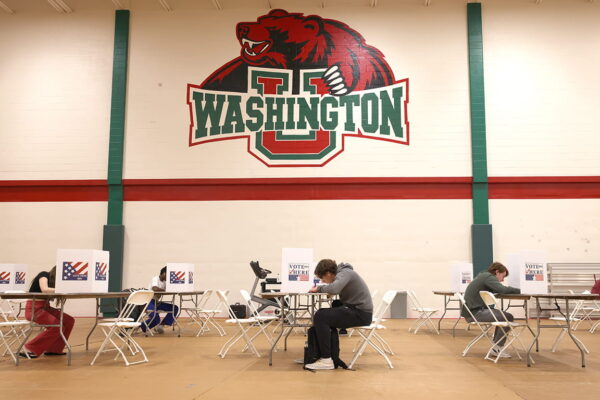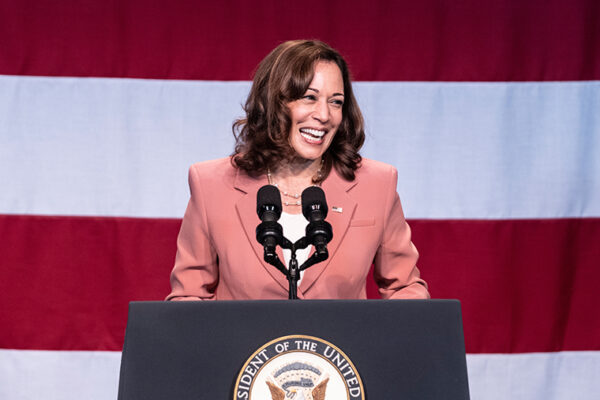Voter turnout among college students has skyrocketed in the past decade — a trend that Stephanie Kurtzman, the Peter G. Sortino Director of Washington University in St. Louis’ Gephardt Institute for Civic and Community Engagement, expects to continue in the upcoming election.
In 2020, 66% of college students across the nation voted, a 14 percentage-point increase from the 2016 election. Turnout increased among both men and women, though women continue to vote at higher rates. There were across-the-board increases by race and ethnicity as well. Turnout among Americans as a whole increased by 6 percentage points to 67%. Kurtzman said that colleges are working harder than ever to make voting a lifelong habit.
“When you don’t vote, you’re actually counting yourself out twice,” said Kurtzman, who noted that 71% of eligible WashU students voted in the 2020 election. “Elected officials and candidates pay attention to who votes. Voting not only impacts an election’s outcome — it also influences whose interests are considered after the election.”
Here, Kurtzman shares what schools are doing to prepare for the upcoming election, how campus protests may affect voting rates and how a renewed emphasis on civic engagement marks a return to the origins of higher education.
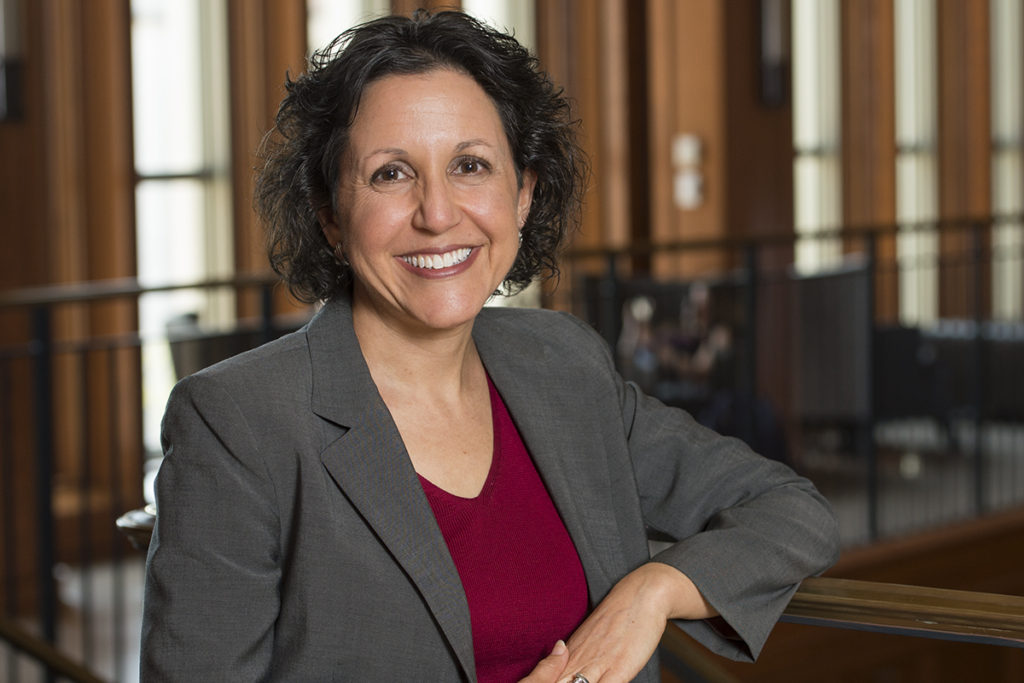
How are colleges and universities preparing for the upcoming elections?
There have been many changes to state voting laws across the country. That means those of us doing voter engagement work are helping students navigate these laws and understand the steps they need to take related to required voter identification, absentee ballot requests, important deadlines and their polling place. In Missouri, for instance, early voting — or “no-excuse in-person absentee voting” — is now available to voters, and we plan to promote that as an option for students who may have class or other commitments on Election Day. However, students who vote in Missouri can no longer use their student ID or out-of-state driver’s license. That means they must plan ahead and bring a passport or Missouri ID, like a driver’s license.
Beyond early communication, universities and national organizations are sharing best practices that have proven to increase turnout — practices like peer-to-peer engagement, offering resources to faculty to connect course content with the election, providing envelopes and stamps to mail absentee ballots and hosting a polling place on campus. Many schools are creating a culture of voting by making Election Day a special day on campus. Some faculty modify or cancel classes on Election Day. Some universities, including WashU, host festivals to celebrate the right to vote and encourage students to deepen their civic engagement beyond the election.
Universities also are working to foster a campus culture that can absorb and manage the tensions and differences of opinion about the election. Mental health teams are stepping up efforts to help students manage stress and anxieties about the election and its aftermath. And universities are deepening efforts to teach students dialogue skills so they can have collegial, respectful conversations.
Do you anticipate the ongoing Gaza protests and the uncommitted movement will depress student turnout?
I think we’re going to see high student turnout across the board. People who are engaged on this issue are paying attention and have strong views. And I would anticipate that they’re going to express those views in multiple ways, including at the ballot box.
We all consider where we can make the biggest impact on issues we’re concerned about and what tools are available to us. As we’re seeing a rising distrust in institutions like government, we see people who feel that voting with their feet through activism may be more effective than voting at the ballot box. These aren’t mutually exclusive — we can all choose multiple forms of civic engagement. And when constitutional amendments and other initiatives are on the ballot, voting is an opportunity for direct democracy — when voters, rather than elected officials, make impactful state-level policy decisions.
Some might argue that voter engagement is beyond the scope of the university’s core mission of education.
The original mission of American higher education was to produce educated and informed citizens who would actively participate in and contribute to our democracy. Over time, higher education shifted its mission toward a career focus — this is important, but not the sole purpose of a college education. Colleges and universities are now coming full circle and re-embracing the public mission of higher education. We want students to graduate understanding and accepting their obligations to society as informed and actively engaged citizens.
